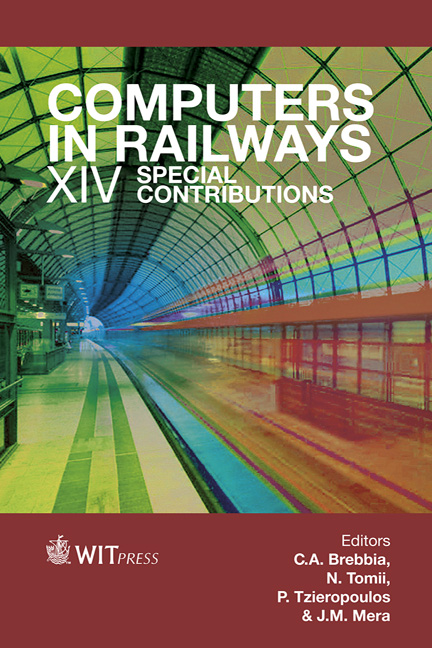The Systematic Energy Management Of Transport Facilities For A Holistic Reduction Of Greenhouse Emissions
Price
Free (open access)
Transaction
Volume
155
Pages
12
Page Range
151 - 162
Published
2015
Size
607 kb
Paper DOI
10.2495/CRS140131
Copyright
WIT Press
Author(s)
K. Rommelspacher, W. J. Conradie, C. J. Fourie
Abstract
The management of energy generally focuses on point-of-use consumption, specifically on those of the actual vehicles used. In order to reduce the total system consumptions and to take energy management into the future, energy supply and consumption needs to be investigated holistically on a systematic level. Energy consumption is generally directly proportional to greenhouse emissions. This is particularly relevant to South Africa where the majority of all energy consumed is fossil fuel-based. Included in this is the electricity used by the various facilities that are used by the rail industry. The feasibility of reducing fossil fuel-based energy consumption, at rail facilities forms the basis of this article. In order to reduce the fossil fuel-based energy consumption either the amount of energy consumed, or the type of energy consumed or both need to change. Financial feasibility of any such shift is a key component to encourage industry to adopt these recommendations. In order to validate the financial feasibility of the recommendations a case study that was performed at the Salt River maintenance facilities of Metrorail, Cape Town, South Africa, is discussed.
Keywords
energy management, point-of-use consumption, total system consumption, energy consumption, energy shift





